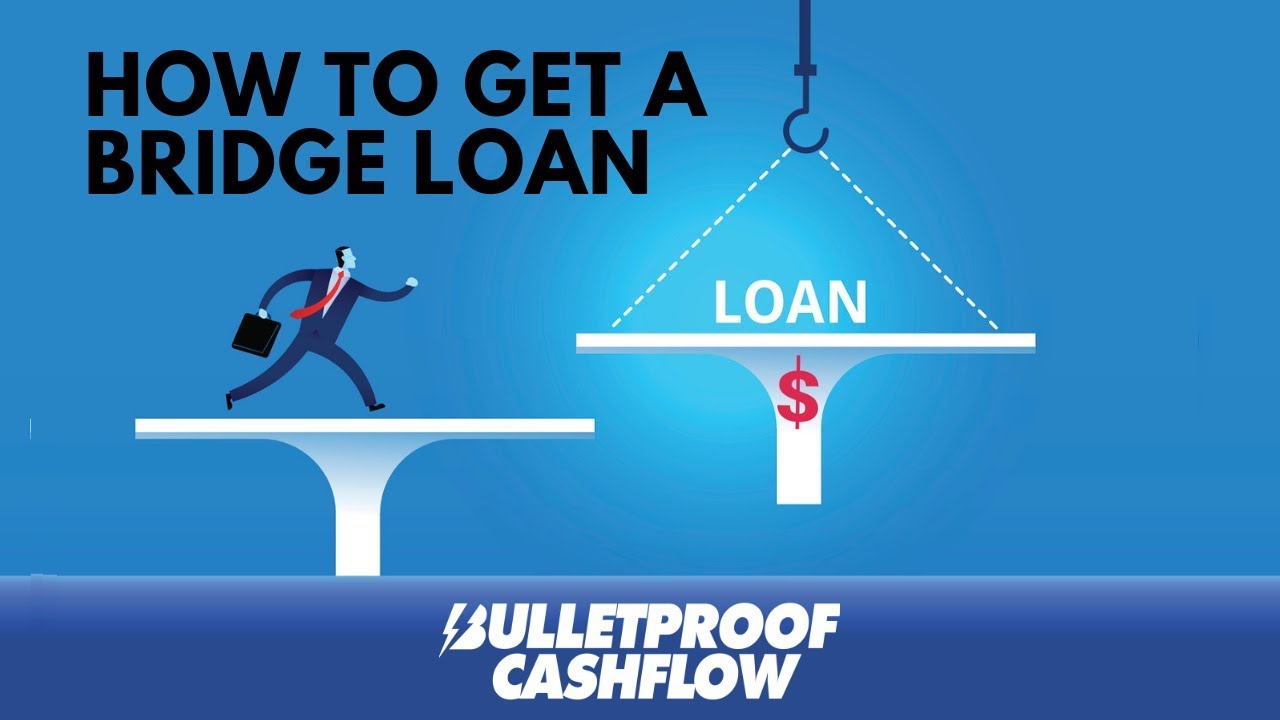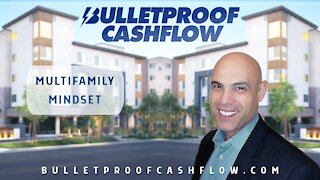Premium Only Content

How to Get a Bridge Loan
Over the past several months, I’ve been working on a handful of deal that required a fast close. Most of them are value-add properties that ranged from low occupancy to rehab projects. This limited our ability to get traditional loans and required us to get creative on getting them closed.
In cases like this, you may opt for a bridge loan. These sorts of loans are used when a bank or lender can’t close fast enough, when you are expecting a sale or a refinance shortly after the close, and when you need to fund a value-add deal that a regular bank may deem risky. Regardless, this is a great tool to have at your disposal and getting a good lender in your corner is important to growing your real estate portfolio.
Typically, the requirements for a bridge loan are very flexible, much more than a traditional bank or a Fannie/Freddie loan. This doesn’t mean they will just hand you cash without due diligence on their side, though. There are many considerations a bridge lender will look at when checking out your deal.
If you cover the main points I’ll outline, things should go over smoothly.
1) The Property
The lender will want details on the property itself. They will want to know about the location, what condition is it in, and what the upside of the deal is. Maybe you are buying the shell of a building and plan on building it out. Or putting up a multifamily on some vacant land. In all cases, the lender will want to know what the overall plan is with the deal.
Share the details on the upside too. If the property is in an opportunity zone, there is a major business moving to the area, or it’s in the path of progress, show them the city plan and tax breaks. If there were any recent renovations or upgrades to the HVAC and electrical systems, tell them. Ultimately, you are looking to convince them that there is real value in the deal you are working on.
2) The Plan
I touched on this in the first point. You need to prepare the overall plan of what you plan on going to the property. The plan must be realistic and timely. If the plan is not believable, they will not lend to you. You may want to consider the following scenarios:
If you are not doing any upgrades, talk about what you will do to get the occupancy up if it is low and what the refinance looks like afterwards.
If you plan on a rehab, you will want to discuss the renovation plan, how much you plan on spending and what sort of upgrades you plan on doing. You will also want to show what you think the property will lease for after you perform your upgrades.
If you are repositioning a warehouse or large retail space into a multifamily dwelling, get specific on what you plan on doing and how you plan on doing it. Show quotes from reputable contractors to backup your plan.
In all cases, show the post-improvement financial plan and the steps of what you will do to get the project to the proforma you laid out.
3) Your History
When you are getting into any major repositioning project, the lender will want to know if you have done anything like this before. If you have a history of doing wholesaling and you want to reposition an old warehouse into a 30-unit apartment complex, chances are they will not extend the loan unless you have an experienced partner on your side to help you execute.
You will want to show how you worked on previous deals, made improvements, and met or exceeded the targets you outlined. They will know how you and your investors made out financially and the outcome of the process. Similar to a traditional lender, they are banking on your ability to execute so a track record is key.
4) Your Financials
Just like a regular commercial loan, the lender will want to get an understanding of your personal financial standing. You need to show enough liquidity and net worth. The riskier the deal, the more of these two items you will need to have, but don’t let this scare you. You can take on a partner to do it and you’ll be able to do the deal.
The lenders will also require a credit and background check. If you had any bankruptcies in the past, be ready to explain what happened and how you plan on securing the deal.
For a non-recourse loan, your money is not at risk beyond what you have into the deal. If the deal fails, and it’s not due to anything illegal or unethical on your part, all this deep underwriting on your financials becomes less important.
5) Full Transparency
Lenders are generally very careful and thorough people. It does not serve you to hide key information about yourself or the deal and have them discover a key problem that may jeopardize the deal. If your fudge your income or embellish on the quality of the property, they will find it. Keep in mind that their due diligence people work day in and day out analyzing deals and underwriting investors. If you show that you are trustworthy and clear from the get-go, it talks to your ethics and strength of character as an individual. It goes a long way with a lender.
-
 2:59
2:59
The Pechmann Team
4 years agoBest idea for a bridge loan
52 -
 6:31
6:31
bulletproofcashflow
4 years agoMultifamily Mindset - How to Get a Bridge Loan | Bulletproof Cashflow Podcast #49
31 -
 0:28
0:28
Sailor_C
4 years ago $0.06 earnedNATURAL BRIDGE
2382 -
 0:13
0:13
jalvarez10
4 years agoGW Bridge
50 -
 0:10
0:10
EntertainmentVideos
4 years agoBridge *
30 -
 0:23
0:23
ryno78
4 years ago $0.01 earnedCovered Bridge
981 -
 0:15
0:15
gpolley1979
4 years agoPoinsettia Bridge, oldest bridge in SC
37 -
 0:07
0:07
easytosmile
4 years agoBridge 8
721 -
 0:43
0:43
Heather2000
4 years agoWooden Bridge!
46 -
 0:21
0:21
Uniquelydes
4 years agoMackinaw Bridge
169